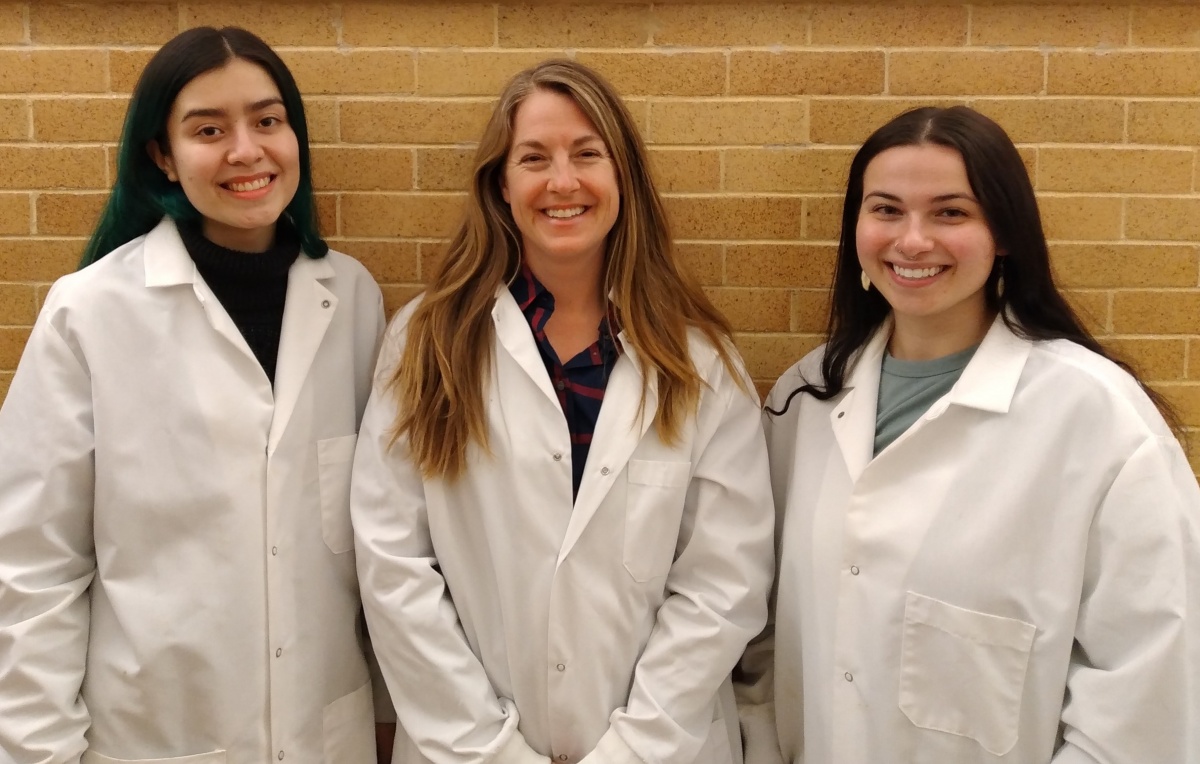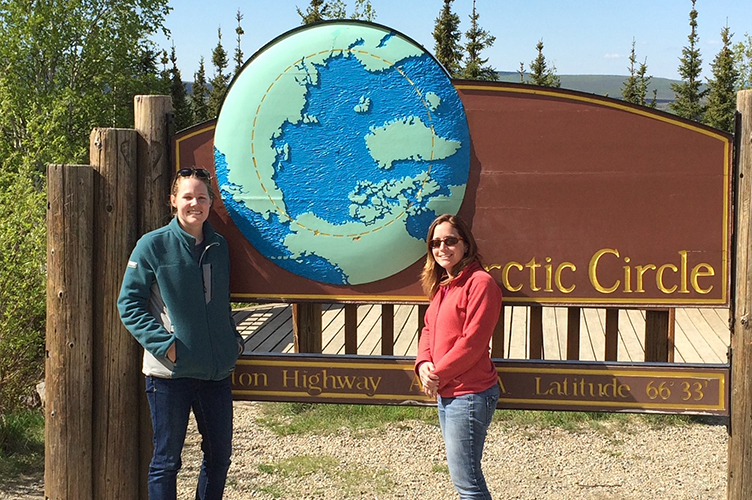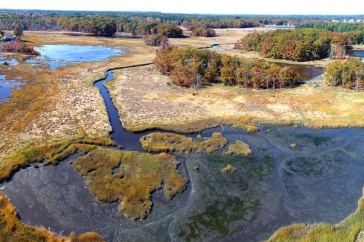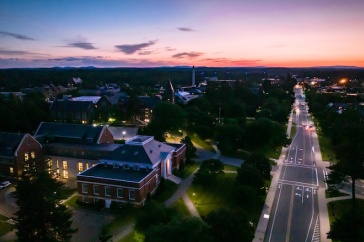Faculty in UNH’s natural resources and the environment program have a strong legacy of tackling environmental challenges through research and education. So when master’s students Joy O’Brien and Alma Hernandez wanted to pursue careers studying Arctic systems, they turned to Jessica Ernakovich, a faculty member with a UNH research and teaching program focused on Arctic ecosystem changes and their local and global impacts.

Creating and performing good research is just part of what’s needed to succeed in scientific discovery and that true impact comes from the relationships we build and the people we affect.
O’Brien, who began her master’s degree in microbiology in the fall of 2020, is tackling the challenge of how microorganisms will proliferate following permafrost thaw. It’s a puzzle with global implications, because when the microbes in the artic permafrost thaw and degrade, they’ll release greenhouse gases into our atmosphere. Under the mentorship of Ernakovich, O’Brien connected to scientists at the U.S. Army Corps of Engineer’s Cold Regions Research and Engineering Laboratory and at the Department of Energy’s Pacific Northwest National Laboratory, sourcing permafrost from these facilities and other colleagues in the Permafrost Microbiome Network so that she could continue her research in lieu of fieldwork, which was made impossible due to COVID-19 travel restrictions.
Hernandez started her master’s degree in natural resources, with a focus on ecosystems, in the fall of 2021. She’s now designing a project to investigate the impact of tundra wildfires on the region’s soil nutrients and microbial communities. Wildfires are becoming increasingly common in the Arctic as our globe experiences warmer temperatures. As part of a National Science Foundation Graduate Research Fellowship, Hernandez is working with the Woodwell Climate Research Center’s Polaris Project.
“There’s so much yet to be understood about Arctic ecosystems, and I’m excited to be preparing the next generation of female scientists to study, appreciate and better understand this changing environment,” described Ernakovich. “I believe that creating and performing good research is just part of what’s needed to succeed in scientific discovery and that true impact comes from the relationships we build and the people we affect.”

Rebecca Rowe and Ph.D. candidate Jess Steketee also research Arctic system science in UNH’s department of natural resources and the environment. For Rowe, mentoring students is one of the more rewarding and gratifying aspects of her career. Her students bring energy and unique perspective to their work and collaborative problem-solving, which, in turn, helps Rowe stay current and creative in her own research, teaching, and mentorship.
“Many young women are pursuing careers in Arctic research where women are still underrepresented as researchers relative to men,” said Rowe. “Given the great importance and complexity of climate change research in the Arctic, it’s important that we foster an interdisciplinary community of scientists where women and members of other under-represented groups are included. This diversity will bring new perspectives and increase the relevance of science to society, which are necessary if we are to identify and advance sustainable solutions.”
Given the great importance and complexity of climate change research in the Arctic, it’s important that we foster an interdisciplinary community of scientists where women and members of other under-represented groups are included.
Rowe and Steketee serve on an interdisciplinary team spanning multiple universities that’s examining small mammals in the Arctic and how fluctuations in their populations may exacerbate or mitigate effects of global warming on tundra ecosystems. Traveling to northern Alaska annually since 2017, Steketee and a team of field technicians survey vole and lemming populations at various sites, noting how changes in the number of small mammals impacts plants and soils.
“Science is a team effort and having a supportive advisor and an amazing group of female mentors has been an extremely positive experience in planning and implementing field-intensive research, progressing through graduate school during a global pandemic, and envisioning future career options,” said Steketee. “I am grateful to be part of a team with so many skilled female researchers who serve as mentors and role models, and I am certain this has contributed to my success, wellbeing and continued interest in this field.”
-
Written By:
Nicholas Gosling '06 | COLSA/NH Agricultural Experiment Station | nicholas.gosling@unh.edu
















































